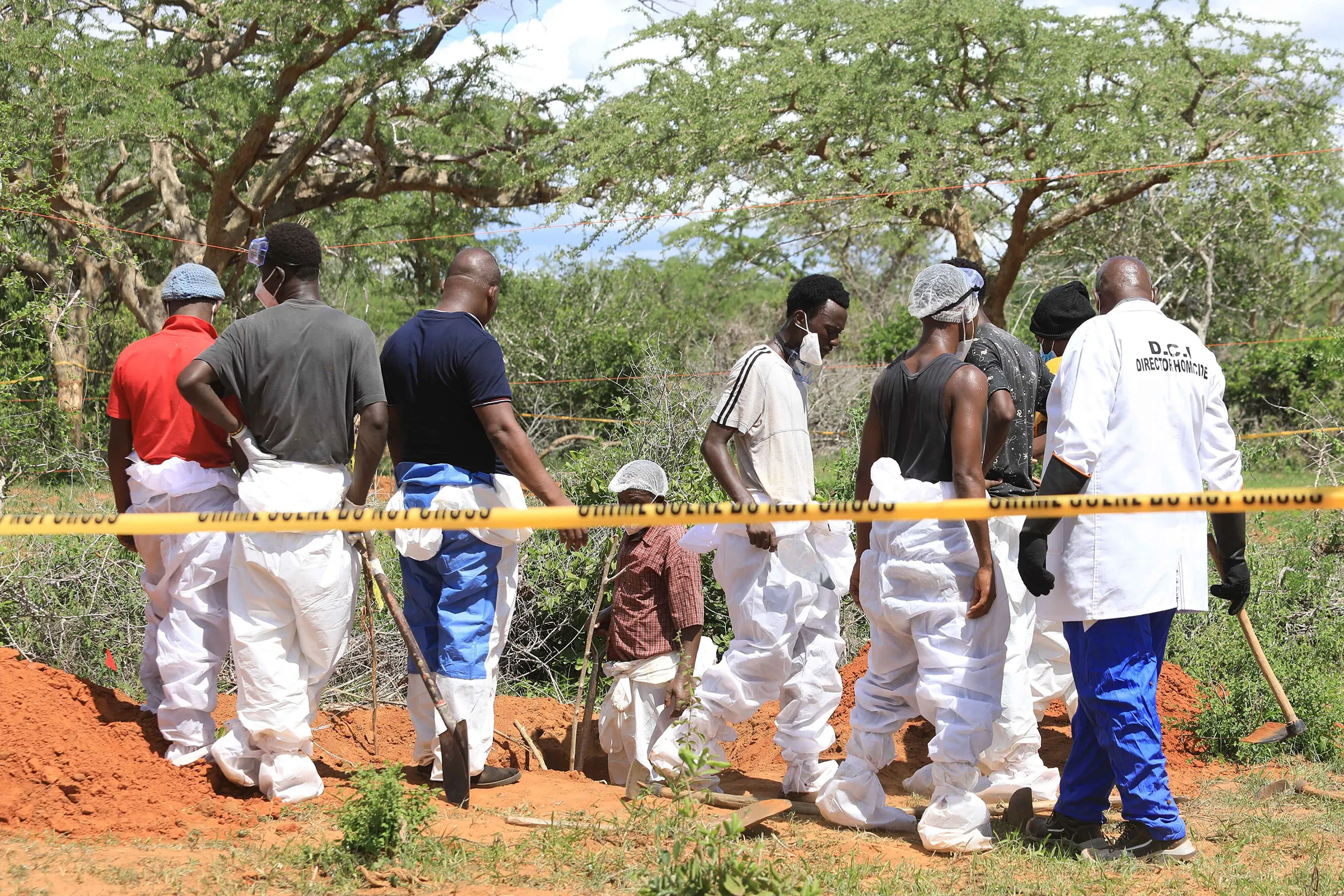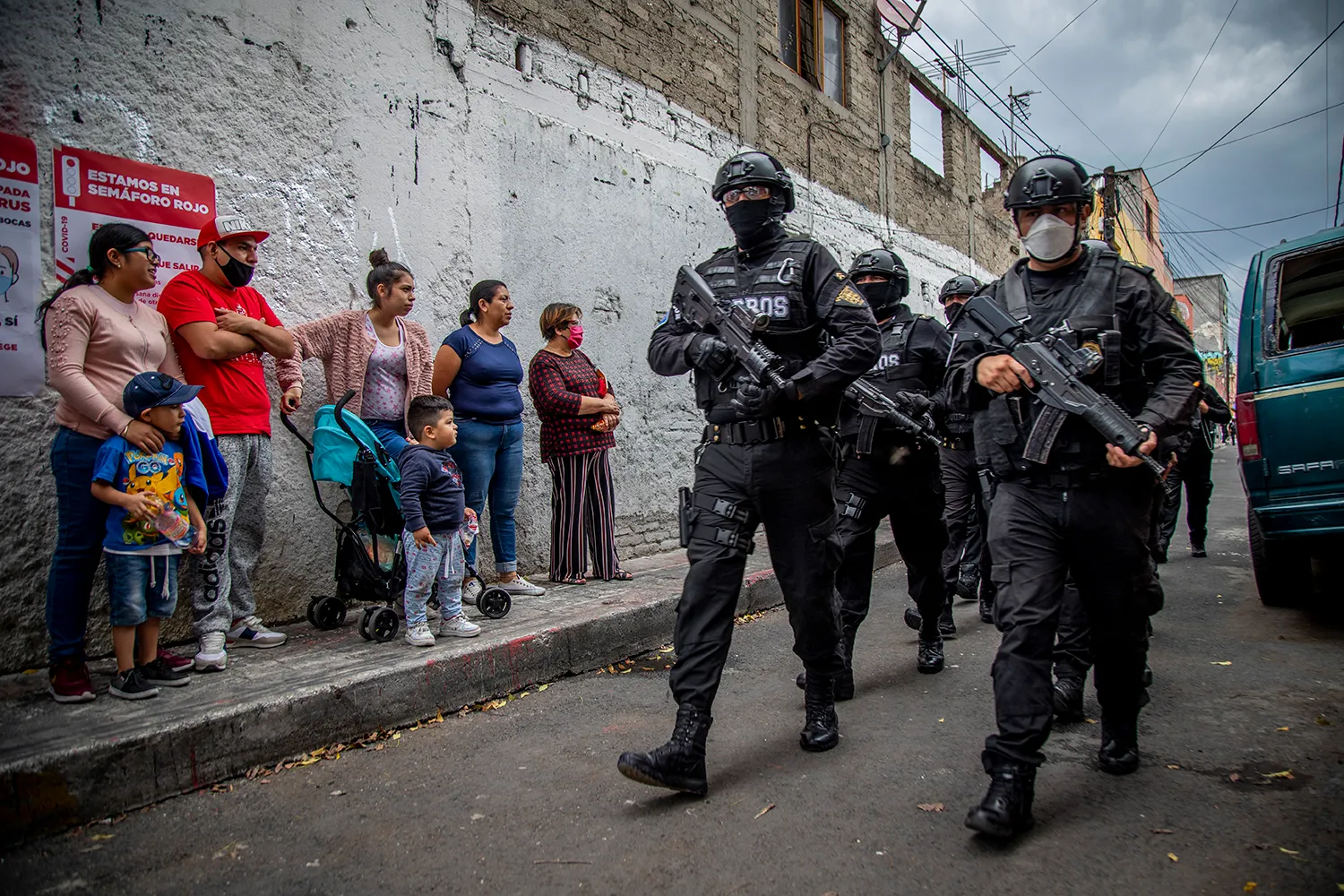In a case that has gripped Kenya and shocked the world, Paul Mackenzie, the leader of a Kenyan cult, has pleaded not guilty to manslaughter charges linked to the deaths of over 400 of his followers. The incident, which is one of the most tragic cult-related mass deaths in history, has sparked widespread outrage and disbelief across Kenya.
Mass Graves Unearthed in Shakahola Forest
Paul Mackenzie, a self-proclaimed pastor, stood trial in Mombasa alongside 94 other suspects on charges related to the deaths of 429 people, including numerous children. The victims’ bodies were discovered in mass graves within Shakahola Forest, a remote area west of Malindi. Authorities reported that many of the bodies bore signs of starvation and physical abuse, revealing the horrific extent of the cult’s practices.
Prosecutor Alexander Jami Yamina, speaking to AFP, emphasized the gravity of the case, stating, “There has never been a manslaughter case like this in Kenya.” The prosecution is set to present over 400 witnesses during the trial, which is expected to last several days.
The Shakahola Forest Massacre: A Nation in Shock
Dubbed the “Shakahola Forest Massacre,” the case has left Kenyans reeling as details of the cult’s practices emerge. According to reports, Mackenzie convinced his followers that they would enter heaven more quickly if they starved themselves. The cult’s rigid hierarchy dictated that children were to die first, followed by unmarried individuals, women, men, and finally, the church leaders themselves.
Mackenzie’s influence extended beyond starvation. He reportedly instructed mothers to forgo medical care during childbirth and discouraged vaccination, all while condemning formal education as satanic. His Good News International Church, established in 2003, was closed in 2019, but Mackenzie continued to lead his followers into the forest, urging them to prepare for the end of the world and their eventual meeting with Jesus.
Legal Troubles Mount for Mackenzie
This trial is not Mackenzie’s first encounter with the law. In July, he was already facing terrorism charges, and he is also embroiled in a separate case involving child abuse. These charges include accusations of torture, assault, and denying children the right to education—allegations that Mackenzie denies.
In a chilling revelation, survivors of the cult have described how the forest was divided into sections named after biblical locations, such as Judea, Bethlehem, and Nazareth. Mackenzie, who reportedly owned 800 acres of the isolated forest, enforced strict rules on his followers, including a complete disconnect from the outside world, as the area had no mobile network coverage.
Kenya’s Struggle with Religious Extremism
Kenya, where 85% of the population identifies as Christian, has seen similar cases of individuals being drawn into dangerous and unregulated religious movements. Mackenzie’s case, however, is unprecedented in its scale and the sheer number of lives lost. His actions have not only led to a national tragedy but have also ignited a broader conversation about the regulation of religious practices in the country.
As the trial unfolds, the world watches, hoping for justice for the hundreds of lives lost in one of Kenya’s darkest chapters.





